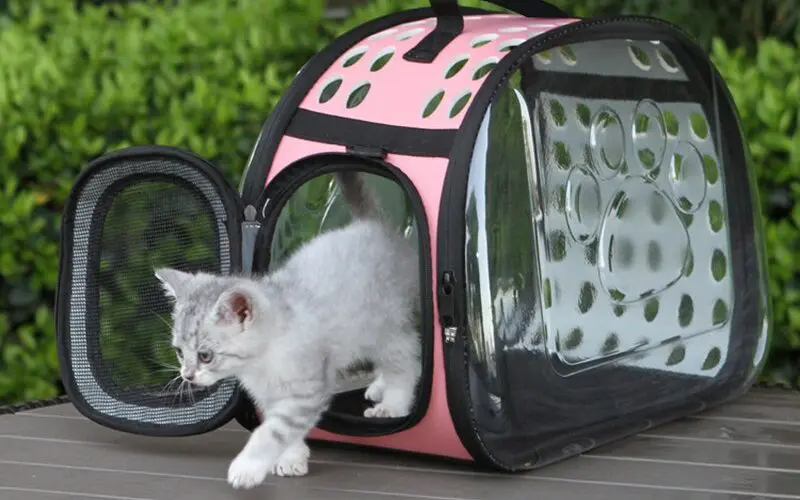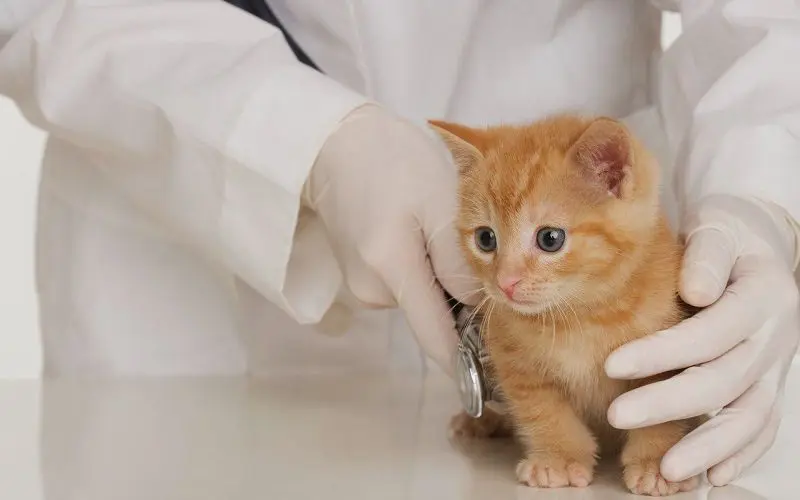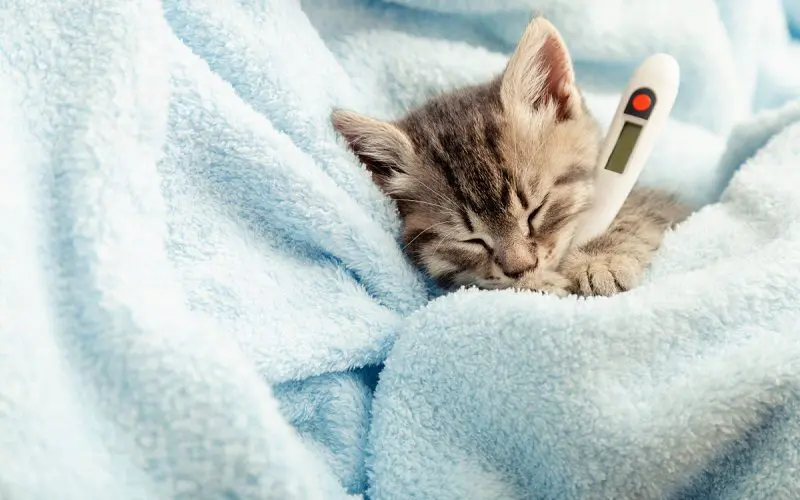Last Updated: 28 seconds ago
Now that you’ve adopted a new feline friend, it’s time for a checkup! Today, we’re talking about what you need to know about your kitten’s first vet visit.
It’s so important to get your new kitty checked out and vaccinated as soon as possible, especially if you have other cats in the house.
Kitten’s First Vet Visit Instructions

A visit with your veterinarian will help ensure your kitten grows up happy and healthy.
Here are some things you need to know about that first visit:
1. Scheduling the Vet’s visit
You should schedule your kitten’s first visit to the vet within 3–4 days of adoption.
If you are adopting your kitten from a pet shelter, it is likely they have already been given a physical exam as well as their vaccinations.
However, it is a good idea to schedule a visit with your veterinarian anyway.
2. Preparing for the vet visit

Preparing for your kitten’s first vet visit involves gathering essential items.
Bring your kitten’s health records, including vaccination history and any information from the breeder or shelter.
The day before your kitten’s vet appointment, you will want to contact the office to confirm the date and time.
Also, inquire as to any special instructions they might have for you, such as providing a stool sample from your kitten or not giving them any food after midnight.
A comfortable carrier is crucial for a stress-free journey to the vet. Pack a favorite toy or blanket to provide familiarity and reassurance during the visit.
3. What to expect when you arrive
Once you arrive at the office for your appointment, you will have to fill out paperwork about your kitten, such as their age, sex, known medical issues, etc.
Be sure you have all of the documentation you were given upon adopting your kitten.
4. What to expect from the Physical exam

Once you are called into the examination room, your kitten will first have some preliminary work done by a veterinary technician.
This will include things like getting a rectal temperature and checking their heart rate.
Once the veterinarian comes in, they will first do a complete physical examination, which includes checking their eyes, ears, and teeth; listening to their heart and lungs; and examining their genitals, abdomen, joints, and skin.
Next, they will be given a round of vaccinations designed to protect them against feline calicivirus, herpesvirus, and feline panleukopenia.
Lastly, the veterinarian will check your kitten for parasites like hookworms, tapeworms, and roundworms. This is done with a stool sample, so if you weren’t asked to bring one in, one will be collected.
5. What Lab Tests Will Your Kitten Need?
Lab tests play a crucial role in evaluating your kitten’s health status.
Your veterinarian may recommend blood tests to check for common feline diseases, ensuring early detection and timely intervention if necessary.
Fecal tests help identify internal parasites, and urine tests can provide insights into kidney function.
These tests contribute to a comprehensive understanding of your kitten’s health and assist in formulating a personalized care plan.
6. Schedule Your Kitten to be Spayed or Neutered

Ensuring the long-term health and well-being of your new feline friend involves scheduling a spaying or neutering procedure.
This critical step not only prevents unwanted litter but also contributes to a healthier and more behaviorally balanced pet.
Consult your veterinarian to discuss the appropriate age for the procedure and the associated benefits for your kitten’s overall health.
What to expect after the vet visit
After the vet is done, he will let you know when to bring the kitten back in for another round of vaccinations, usually about a month later.
Monthly vaccination visits will continue until your kitten is around five months old, at which point vaccinations are done on a yearly basis.
Are you already a pro at cat parenting? Let us know if you have anything else to add to what you need to know about your kitten’s first vet visit!


Dr. Linda Simon MVB MRCVS is a locum veterinary surgeon who has worked in London for the past 8 years. She graduated top of her class in small animal medicine from UCD, Dublin. She is currently a member of the Royal College of Veterinary Surgeons. Linda is the resident vet for Woman magazine and a frequent contributor to People’s Friend Magazine, the Dogzone website, Vet Help Direct and Wag! Linda also writes content for the CVS veterinary group, Vetwriter and a number of other establishments.
